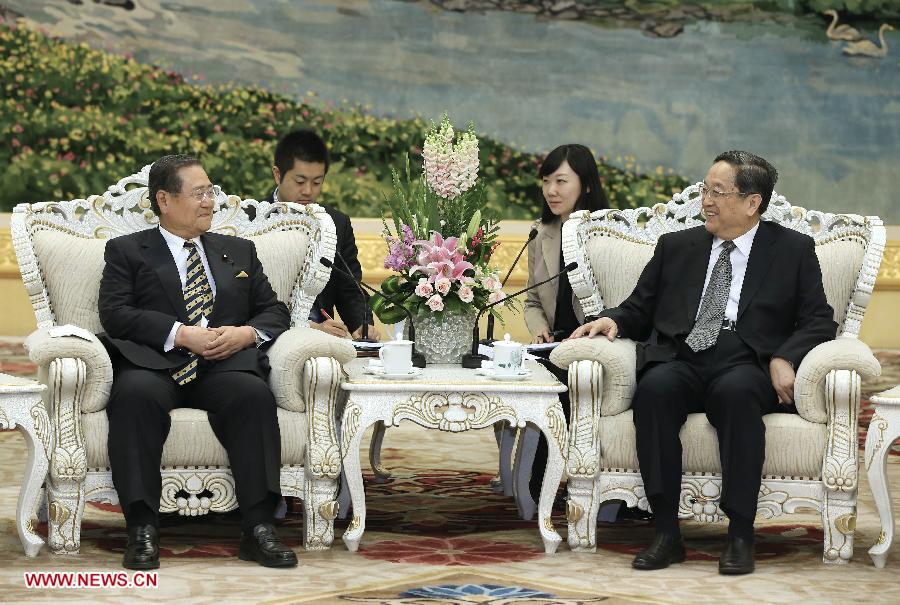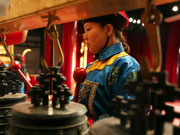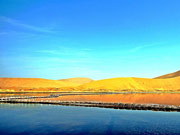 |
| Yu Zhengsheng (R), chairman of the National Committee of the Chinese People's Political Consultative Conference, meets with a group of Japanese lawmakers led by Takeshi Noda (L), the veteran Liberal Democratic Party (LDP) lawmaker, in Beijing, capital of China, May 9, 2014. (Xinhua/Pang Xinglei) |
BEIJING, May 9 -- Despite 20 months of strained relations, Chinese political advisor Yu Zhengsheng met with a group of Japanese lawmakers on Friday.
"Diplomatically, there are some difficulties now, but I believe friendly exchanges like this, and people-to-people and business exchanges should be continued," Yu said at the start of meeting.
"We are deeply concerned about the current state of Japan-China relations," said Takeshi Noda, the veteran Liberal Democratic Party (LDP)lawmaker leading the six politicians' Beijing visit.
The visit comes only days after another delegation departed on Tuesday.
On Monday, a delegation led by Masahiko Komura, vice president of the LDP, met with legislator Zhang Dejiang, who said the visit reflected the lawmakers' determination to move forward.
The two Japanese delegations'meetings with Zhang and Yu, members of the Standing Committee of the Political Bureau of the Central Committee of the CPC, are the highest contact between leaders of the two countries in recent months.
There have been few high-level political contacts since Japan's "purchase" of the Diaoyu Islands in September 2012. Japanese Prime Minister Shinzo Abe's visit late last year to the Yasukuni shrine did nothing to help the situation. The visit was the first by a serving Japanese prime minister since 2006.
Apart from the latest lawmakers' visits, about ten Japanese delegations have visited China since April.
Meeting a delegation from the Japanese Association for the Promotion of International Trade in April, Vice Premier Wang Yang called on Japan's business community to overcome the obstacles. Also among the flurry of the visits, Governor of Tokyo Prefecture Yoichi Masuzoe came to Beijing in late April.
"At a time that China-Japan political ties stay at historic low, a couple of delegations' visits have made parliamentary, youth and local government interactions possible and to some extent eased bilateral tensions," said Ma Junwei of the China Institute of Contemporary International Relations.
"The recent visits highlighted Japanese willingness to communicate with China, yet Abe's Europe trip showed the other side and let us all down," said Gao Hong, of the Chinese Academy of Social Sciences.
During his latest six-nation European tour, Abe played up the "China threat" and underscored his commitment to changing the Constitution and lift a self-imposed ban on collective self-defense.
"China-Japan relations are still dominated by confrontation," Gao said, stressing the key to removing major obstacles is in the hands of Abe and his cabinet
"Now it is not the time for a resumption of high-level communications between the two countries," said Xu Dunxin, former Chinese ambassador to Japan, urging Abe to show sincerity through tangible action.
"It is Abe who closed the door on dialogue. Now it is up to him to open the door again," Xu said.
 |

 Divine music of the Temple of Heaven goes to France
Divine music of the Temple of Heaven goes to France Beijing holds anti terrorism and riot control drill
Beijing holds anti terrorism and riot control drill Female special operation members in military skill training
Female special operation members in military skill training The last cave-dwelling tribe in Asia
The last cave-dwelling tribe in Asia Beijing in the 1980s
Beijing in the 1980s A Swiss young man's 'low carbon wedding'
A Swiss young man's 'low carbon wedding' Top 10 most expensive cars in the world
Top 10 most expensive cars in the world Delicious breakfasts from the world
Delicious breakfasts from the world Badain Jaran Desert: Amazing curves of nature
Badain Jaran Desert: Amazing curves of nature China's most luminous celebrities
China's most luminous celebrities
Day|Week|Month